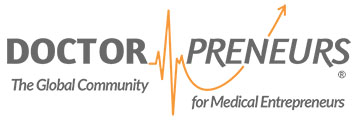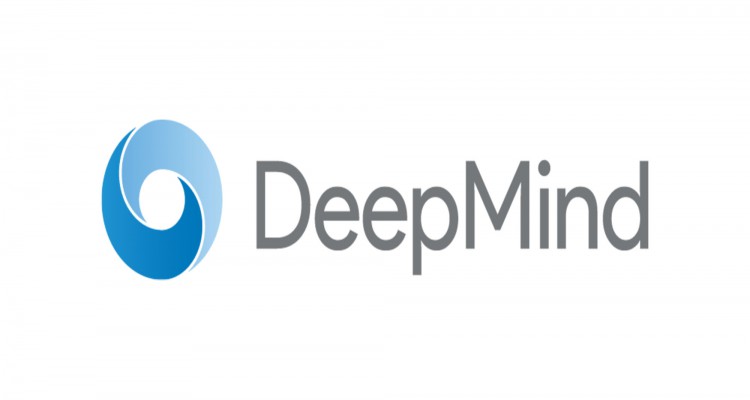
DeepMind is the world leader in artificial intelligence (AI). DeepMind Health was set up to build mobile tools and use AI research
to help facilitate patients to move from test to treatment as quickly and accurately as possible.
Dominic King is the Clinical Lead at DeepMind Health. He ensures the team’s work is driven by clinical and patient input, and backed by robust clinical evidence. He is an Honorary Clinical Lecturer at Imperial College London, where he previously worked as an academic general surgeon. Dominic’s research interests lie in digital health, health policy and behavioural economics.
The clinical app company Dominic co-founded, HARK, was acquired by DeepMind in early 2016 and has been incorporated into the Streams clinical system that is being deployed in NHS hospitals.
You have a wide variety of professional experience. Can you tell us more about the transitions you made to your current role as Clinical Lead at DeepMind?
Back in 2007, I was very fortunate to get a placement at St Mary’s Hospital in London during my surgical training. I worked for Professor Lord Ara Darzi who at the time was combining his pioneering surgical practice with serving as a government Minister for Health. Lots of us working with Professor Darzi were subsequently exposed to exciting areas of research that most doctors at the time wouldn’t get exposure to.
I soon started a PhD in the field of behavioural economics, which had come to the attention of policymakers following the publication of the influential book ‘Nudge’. As part of my PhD, I co-authored a report at the Cabinet Office called ‘Mindspace’ that was used as the initial operating framework for the Behavioural Insights Team, established by UK Prime Minister David Cameron.
In 2010, I was appointed to a Clinical Lectureship at Imperial College, London where alongside my registrar training in general surgery, I led programmes of research in behavioural economics, patient safety and digital health. One area I became interested in was the patient safety implications of poor communication in healthcare that resulted from a continuing reliance on outdated technologies like pagers. We saw the potential benefits of how nurses and doctors were already using smartphones and a group of us at Imperial started building our own health apps to help address the problem.
I co-founded the HELIX Centre, which was the first design centre in a European hospital. I really enjoyed working with designers to build user-centered technologies. Over the course of a couple of years, I led the development of a clinical task management app called Hark – which showed benefits over existing pagers – but had a challenging time trying to get it implemented in the NHS.
In late 2015 I emailed Mustafa Suleyman, the co-founder of DeepMind. Mustafa had become interested in applying DeepMind’s technology in healthcare and had been speaking to nurses and doctors to understand all the challenges we faced. He was really impressed with the way we had built Hark and respected the challenges in getting it deployed. I was really excited when Mustafa asked me to join DeepMind and bring Hark into the Streams app that was already being worked on here.
It was a big step leaving medicine but I really felt that this was a unique opportunity to put advanced technology at the service of patients, nurses and doctors. We are now deploying Streams at 4 NHS Trusts and are also working on a number of AI research projects including in retinal scanning, radiotherapy planning and mammography.
Many health professionals are increasingly interested in joining tech companies and startups focusing on solving problems within healthcare. Where do you see the most value being provided by health professionals interested in software and tech? Should health professionals start a venture of their own or join already established companies and/or startups?
There is a huge attraction to being part of organisations that are building transformative technology solutions. It is really exciting to see a product or service you have directly contributed to making positive impact in the world.
There is a thriving community of clinicians building their own apps – just look at the numbers of people taking part in the NHS clinical entrepreneurs programme. It is a big jump to leave clinical practice and I think it is important that people consider the move based on their individual circumstances and preferences.
Lots of health technology companies are recruiting clinicians but you need to make sure the role is a good fit for you and that your input is going to be really valued. At DeepMind Health, there is a team of nine full time clinicians and we draw on the expertise of many more on a part time basis. I think all of the DeepMind clinical team would say that our expertise are really respected by our colleagues and we play a big role in the important decisions we make.
As far as I’m aware, DeepMind Health has been involved with the Royal Free London NHS Trust through an app called Streams, which directs clinicians to patients who are at risk of or who have developed acute kidney injury (AKI). How has progress been since its release earlier this year?
Streams is a secure mobile app that pulls together information from many different hospital IT systems and can send a breaking-news style alert to the right clinician when a patient’s test results indicate that their condition is getting worse. At the moment, much of that information is stored in paper records, or can only be accessed by queueing for and logging into multiple desktop systems. That means it takes a long time for clinicians to build a clinical picture about their patients, which can delay treatment.
Streams brings all that information together in a useful way in one place, and speeds up the time it takes for the right doctor to reach the right patient with the right treatment. Streams went live with the nephrology and nursing outreach team at the Royal Free Hospital in early 2016. Within weeks, nurses were telling us that it was saving them time throughout the day and there were early signs of patient care being improved. A formal service evaluation is underway that will provide evidence of the impact Streams is having.
Although there has been great feedback from staff and patients, the Streams rollout has been the subject of controversy. Concerns were raised about how patients were informed about the work and how patient data was used in product safety testing. We have learnt a lot about this experience and have made major improvements to transparency, oversight and engagement.
Are there any plans to release the app to other hospitals and NHS Trusts around the UK?
In the last six months we have signed partnerships with Imperial College Healthcare NHS Trust, Taunton and Somerset Foundation NHS Trust and Yeovil District Hospital NHS Foundation Trust to implement Streams. We are working closely with the clinical teams at these hospitals to ensure that we are responding to their specific needs.
In regards to DeepMind’s AI research within healthcare, what is progress like on the research being conducted at Moorfield’s Eye Hospital and University College London Hospitals (UCLH)?
Separate from our work with Streams, we also have research partnerships several Trusts, including Moorfields looking at retinal scans, University College London Hospitals (UCLH) NHS Foundation Trust on radiotherapy planning and Imperial College London on mammography. This work is progressing really well with promising signs of early success. We look forward to sharing the results of these research projects in peer reviewed medical journals.
What excites you most about applying machine learning to problems within healthcare?
Healthcare is really complex and becoming increasingly so. Clinicians are under enormous pressure and I believe that machine learning can provide nurses and doctors with better predictions to improve patient care. This may be picking up the earliest signs of disease on a scan which cannot be picked up by the human eye or looking through the medical record and identifying patients at risk of sepsis or acute kidney injury more quickly.
I believe that machine learning can provide nurses and doctors with better predictions to improve patient care.
What is the best thing about working at DeepMind Health?
The people and mission. I have been incredibly lucky to work with amazing clinical and academic teams in previous roles and I really enjoy working with multidisciplinary teams. At DeepMind, I get to work with exceptional designers, engineers and scientists and I feel that I learn something new every day. We also get to work on really important problems. I worked as a breast cancer surgeon and I am really happy to be involved in a mammography project where we could help improve diagnosis and treatment of this disease.
Moving forward, what role do you think DeepMind Health will play in improving the NHS and its services? Why do you think your team will succeed?
Over the next year, I hope that we demonstrate that our solutions are both practical as well as smart. But we also want to demonstrate that we are having positive impact on patients and clinicians, and we think we will do so with our secure, mobile app Streams.
We also want to build trust with patients and the public and are spending a lot of time in conversation with service users. I am confident that our own team will demonstrate positive impact due to the user-centered approach we take, involving patients and clinicians at every stage of our work.
Our own team will demonstrate positive impact due to the user-centered approach we take, involving patients and clinicians at every stage of our work.
Will DeepMind Health seek to expand their research to other hospitals and healthcare systems around the world?
We are focused on our existing projects but are actively exploring other areas where we can make a positive difference. We have recently announced a partnership with the Veterans Affairs in the US, where we are looking at how machine learning can predict patient deterioration.
Which areas in healthcare do you think is underexplored in terms of applying AI and machine learning?
Much of the focus in the sector is currently in medical imaging although there is growing interest in looking at electronic medical records and data from wearables that could be used to support preventative care.
It’s been a hectic morning and you need something to refuel, what is your go-to lunch?
One of the benefits of working at DeepMind is we get a beautiful lunch every day. Certainly beats the hospital canteen.
Describe the reason behind DeepMind Health’s success so far, in 10 words or less.
Focused on needs of patients and clinicians.

